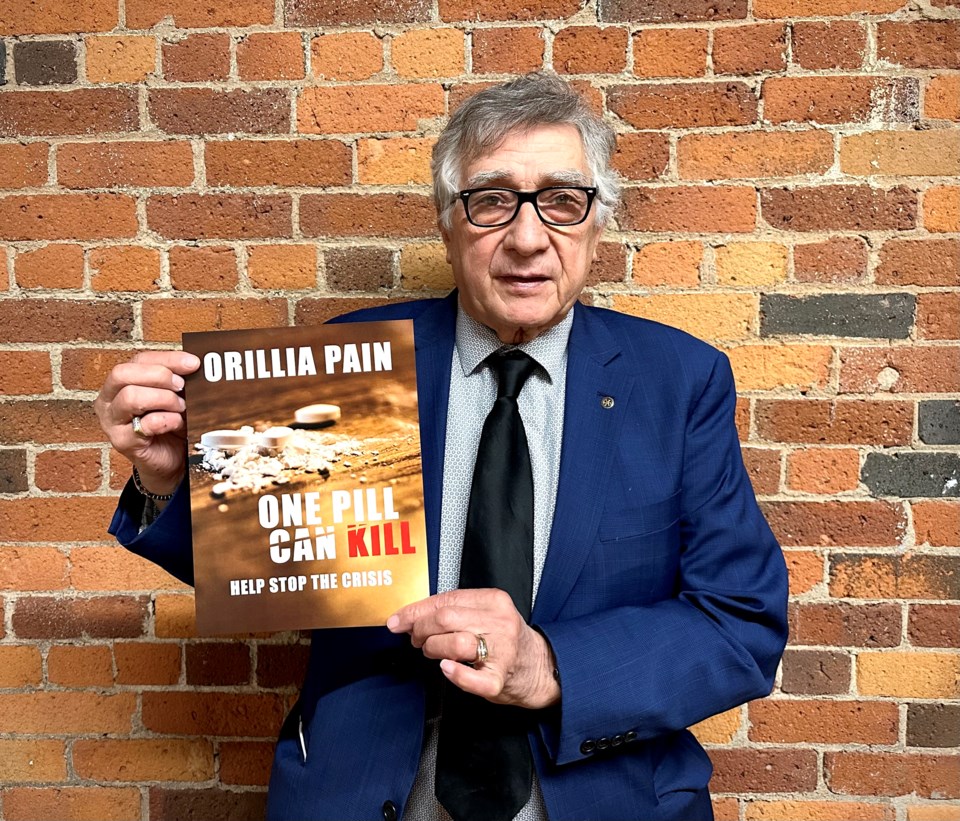The City of Orillia is working towards bringing a drop-in centre and community hub to the city to help tackle the opioid crisis.
The idea, brought forward at Monday’s council meeting, aims to help meet people’s basic needs and provide them with connection to a variety of local resources – whether it’s housing services, or harm reduction, or others – under one easy-to-access roof.
The drop-in centre would address one of numerous urgent needs identified by the city’s opioid crisis working group, which met throughout the spring and summer to devise a strategy for addressing the opioid crisis locally.
Beyond connecting to local resources, the community hub will be a place for people to drop by for a cup of coffee and connect with community members, as well.
“The idea of a community hub is that it would be a physical space … to meet people's basic needs, but it also is going to build those community connections,” said Coun. Janet-Lynne Durnford, who served on the working group with Coun. Ralph Cipolla.
“Research shows that the best path to avoid addiction and the best path out of addiction is connection, and so we need to build those community connections and we also need to provide that one-site, coordinated access to services," Durnford told her colleagues at the council table.
At Monday’s council meeting, city politicians voted to create another working group – the addiction and overdose crisis working group – to identify potential locations and funding sources for a community hub, and to develop a public awareness and education campaign to help reduce stigma for substance abuse and generate support for the community hub project.
The working group, composed again of Durnford and Cipolla from city council, as well as representatives from various community organizations, will report back to council by April 2024.
“Opioid addiction has reached epidemic proportions across the nation, and our municipality is not immune to its devastating consequences,” said Cipolla at Monday's meeting.
“We must prioritize public education and awareness programs and ensure that our residents are well informed about the risks associated with opioids,” he said. “We also need to strengthen collaboration between health-care providers, law enforcement and addiction treatment facilities to create a comprehensive support network for those who are struggling with addiction.”
Aside from the community hub and public awareness campaign, the opioid crisis working group identified a variety of local needs, which are as follows:
- Coordinating access to treatment, harm reduction, and mental health services;
- Creating Orillia-based detox services and beds;
- Creating publicly-funded addiction treatment services and beds, above the 15 currently available, for men, at the Seven South Treatment Centre;
- Creating harm reduction services, such as supervised consumption sites;
- Expanding the scope, scale, and accessibility of mental health services;
- Developing a poverty reduction strategy; and
- Developing partnerships with local post-secondary institutions to help improve addictions services locally.
Bringing the community hub to Orillia is one action the city can take on its own, Durnford said, while noting addressing many of the above local needs will require cooperation from other levels of government.
“Those things that are needed, immediately, to address the addiction and overdose crisis in our community … the city really does not have jurisdiction for,” she said. “These are services that require regional, provincial and federal funding, planning and coordination.”
A copy of the working group’s report will be sent to Simcoe North MP Adam Chambers and MPP Jill Dunlop, County of Simcoe Warden Basil Clarke, all municipalities in Ontario, the Simcoe Muskoka District Health Unit, the OPP, and others.
“The purpose of that was … to raise awareness of all of those measures that are urgently needed in our community, and other communities, which cannot be addressed by the municipality alone,” Durnford said. “We do hope that this will spark conversation at other levels of government and other municipalities, as well.”
Several council members emphasized their support for the community hub initiative, with Coun. Jay Fallis stating he views opioid addiction primarily as a health issue.
“One of the things that I really believe is that we have to make sure that we treat this as a health challenge, not as a crime,” he said. “I think if we can start with that, when we're thinking about this issue, that can lead to a lot of more meaningful solutions.”
